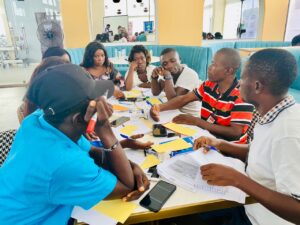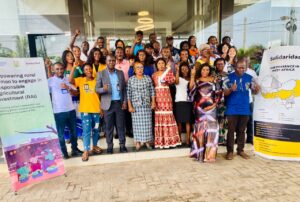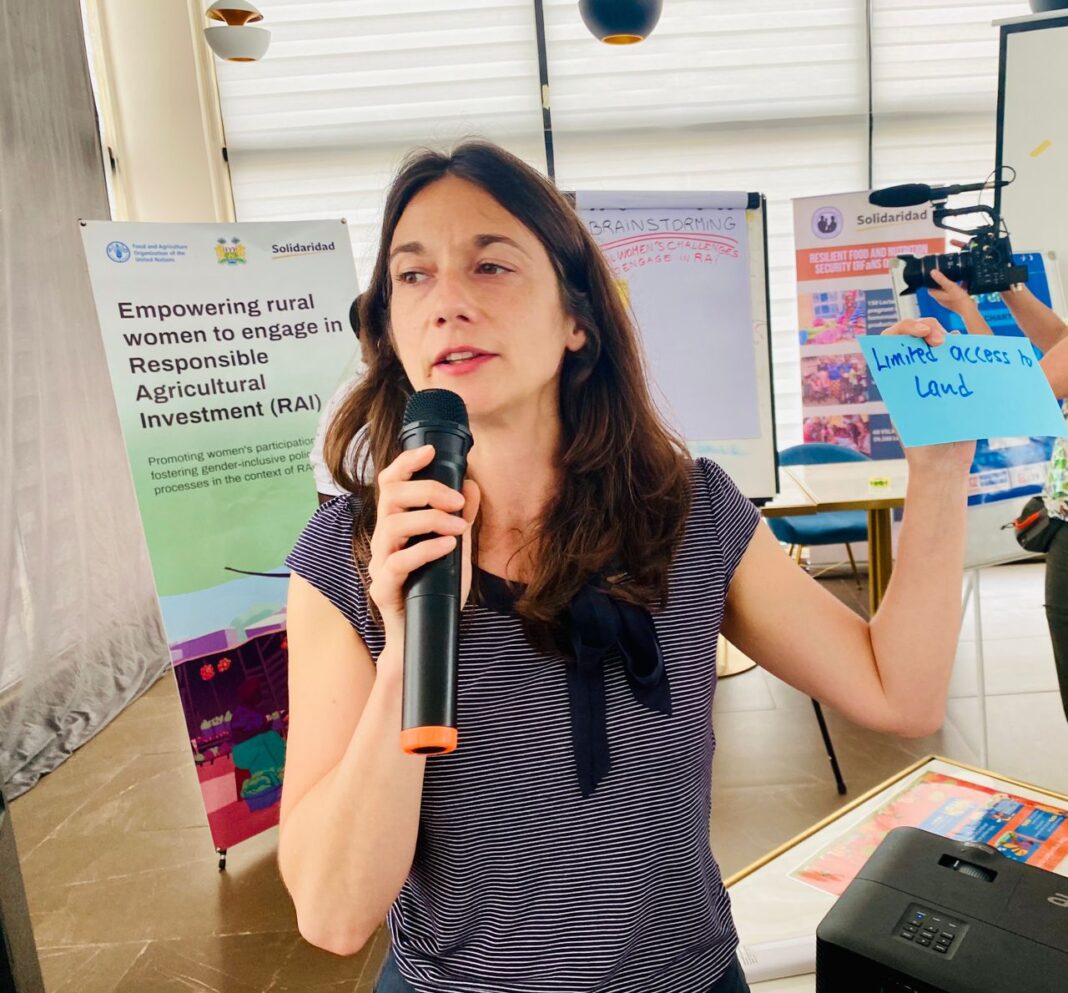By Ragan M. Conteh
Solidaridad West Africa in collaboration with Food and Agriculture Organization (FAO) of the United Nations has commenced a four-day training of trainers workshop aimed at strengthening the capacities of key actors to learn events on Responsible Agricultural Investment (RIA) and food systems targeting rural women.
The workshop is also to strengthen participant’s knowledge on responsible agricultural investment and rural women’s challenges in Sierra Leone.
The workshop started on Monday 29 May and will end on 1 June 2023 at the Sierra Palms, Aberdeen Beach Road in Freetown, Sierra Leone.
Making her statement, the Capacity Development Expert -FAO of the United Nations based in the headquarters of Rome, Italy, Maud Oustry said women will learn how to use the methodology and practice several facilitation techniques.
She said they started a responsible investment in agriculture in Sierra Leone in 2020 through a participatory multi-stakeholders process.
He said the workshop is a roadmap to enhance gender responsive investment and women participation in the decision making process in Sierra Leone.

She continued that rural women are at the backbone of food security in Sierra Leone, comprising 70% of the agricultural labour force.
Maud Oustry stated that despite their key role, women are often disadvantaged and do not benefit from the same opportunities as men regarding agricultural activities.
Back-to-back constructive dialogue events will be facilitated with local authorities to formulate concrete recommendations to empower women to engage better in RAI in each district.
In this spirit, according to Maud Oustry, the Food and Agriculture Organisation of the United Nations in collaboration with the civil society organisation, Solidaridad West Africa, are launching the second phase of a capacity development training targeting rural women and their organisations in Sierra Leone.
She maintained that the first phase of this project took place in 2022 in the districts of Bo, Bombali, Kenema and Port Loko, while the second phase will take place from May to November 2023 in the districts of Kambia, Koinadugu, Kono, Moyamba and Pujehun.
She revealed that the initiative aims at empowering rural women so they can actively participate in decision-making processes related to responsible agricultural investment, and by doing so raise their concerns, needs and proposals for more gender-responsive investments.

In his statement, the Assistant FAO Representative in Charge of Programme, Harding Wuyango, thanked women representatives for being at the workshop, describing them as the backbone of agriculture in Sierra Leone.
Harding Wuyango disclosed that FAO is always supporting women’s responsible agricultural investment that is sustainable livelihood in the country.
According to Harding Wuyango, the workshop is geared towards promoting gender equality and women’s participation in the decision making process in agriculture.
It is also aimed at strengthening women’s capacity in the decision making process in agriculture.
He said, in the next four days, women will be equipped with specific knowledge on the skills in undertaking agriculture as well as promoting and strengthening agriculture in their specific districts.
The Country Representative, Solidaridad West Africa, Andrew Kojo Morrison expressed thanks to partners for continuing to empower women and ‘HeforShe’ participants, adding that the workshop is very important to empower rural women in agriculture.
He said there is a need to improve women in community to take and make decisions on their own and become the champions.
He said they know the districts that are very active in agricultural productivity, adding that participants are going to learn a lot to ensure a participatory workshop on how they can ensure representations in communities are empowered.
He also spoke on women’s empowerment and how the law guarantees women’s rights to own land, adding that the training is going to be a continuous process which will improve knowledge on women.
Andrew Kojo Morrison also spoke on the unequal situation which is due to multiple factors, including gender biases in access to productive resources, labour and services; lack of gender-sensitive policy and legal frameworks and deeply rooted discriminatory social norms.
He said responsible investments in agriculture and food systems (RAI) contribute to reducing poverty, enhancing food security and nutrition and fostering sustainable development and thus can be considered a major driver for the achievement of the Sustainable Development Goals (SDGs).
However, he said the SDGs can be achieved only if both men and women can equally engage in these investments.
Andrew Kojo Morrison said the implementation of this programme has started in May with a trainer of trainers in Freetown for representatives of key organisations playing a strategic role in rural women’s empowerment. He went further that training aims at expanding the pool of skilled trainers to replicate the training for rural women in the districts.
He went further that through the four-day training, the trainers will be equipped with knowledge, skills and an innovative training methodology tailored to rural women’s needs and constraints.
He concluded that through this training approach, using mostly audio-visual material, scenarios and drama play, the training of trainer’s participants will learn how to support rural women in the identification of their challenges to engage in responsible agriculture and potential solutions to address them.
He also spoke on how they will look in particular at the national policy framework, the key actors involved, and the participation of women in decision-making processes related to responsible agricultural investment.


